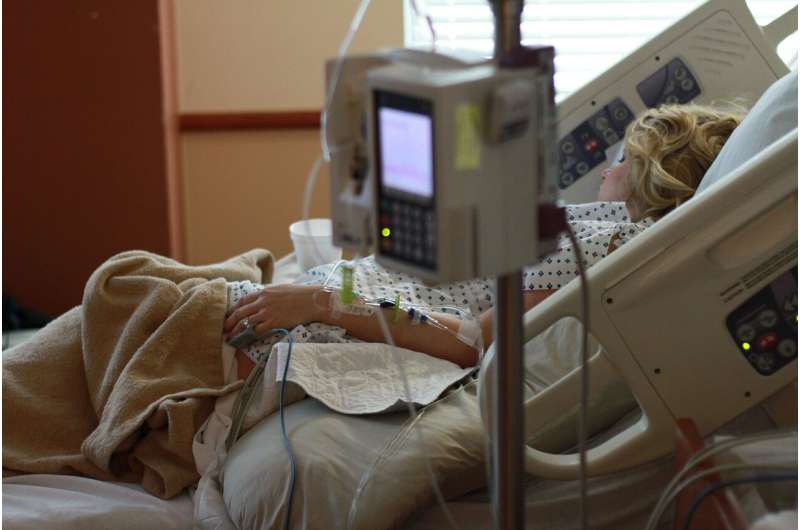This article has been reviewed according to Science X's editorial process and policies. Editors have highlighted the following attributes while ensuring the content's credibility:
fact-checked
peer-reviewed publication
trusted source
proofread
Missed opportunities for the one in five with anal incontinence after childbirth

Researchers are calling for improved care and more awareness of injuries that leave over one in five of those giving birth with anal incontinence.
Over one in five women will develop anal incontinence in the first five years after having a vaginal birth. Anal incontinence is common and usually caused by trauma to the pelvic floor, nerve damage and anal sphincter injuries.
The timing of symptom onset varies; some women experience anal incontinence onset soon after childbirth (which may or may not resolve), while many develop worsening or new symptoms during the menopause.
The University of Warwick-led study, with input from the MASIC Foundation (a national charity to support women who have suffered severe injuries during childbirth), identified missed opportunities in getting a diagnosis of anal incontinence, an absence of clear pathways for those who are referred for treatment, and a lack of awareness of the problem among health care professionals and those who have given birth. The study is published in the journal PLOS ONE.
The team conducted qualitative interviews on women who have experienced anal incontinence following a childbirth injury, either within seven years of sustaining the injury, or if they identified new, or worsening symptoms of anal incontinence at the time of menopause.
Due to the stigmatizing nature of anal incontinence, it is often not reported by those who suffer it, with less than 25% of women discussing their problems with GPs unless prompted. Health care professionals may feel uncomfortable asking questions about anal incontinence in postnatal encounters, or lack experience of asking about, detecting and managing the condition. This represents a missed opportunity to identify and refer women to appropriate care pathways.
The study comes as the UK Government aims to address the inequalities in women's healthcare, with the publication of its Women's Health Strategy—with the aim of improving health outcomes for women.
It also follows the release of The Ockenden review, published in The Lancet, reporting on women's health in the UK, which stated that the provision of substandard maternity care has led to unnecessary deaths and injuries.
Dr. Sarah Hillman, Warwick Medical School, University of Warwick, said, "We interviewed over 40 women who had experienced anal incontinence due to a childbirth injury. Women reported missed opportunities in gaining a diagnosis—including a lack of examination, delayed or missed diagnosis and normalization or dismissal of symptoms—and missed opportunities within the provision of appropriate and timely information.
"There is a lack of awareness of the problem both for health care professionals and women and a bias towards urinary incontinence. For those who are able to get a diagnosis of anal incontinence, they are often faced with disjointed care pathways. This all contribute to delays in accessing appropriate care for this debilitating problem.
"Going forward we have identified a need to establish clear care pathways for those diagnosed with anal incontinence and a vital need to raise awareness and decrease the taboo of the topic."
Professor Michael Keighley, President of The MASIC Foundation said, "The MASIC Foundation is the only UK charity to support and campaign for women who suffer severe perineal injury following childbirth. These women can face loss of dignity, social isolation, psychosexual and emotional distress—such as post-traumatic stress and a fear of future childbirth—which results in an unspoken taboo.
"These women need support; from finding a friend who has had a similar injury, to being signposted to interventions that will allow them to better cope with the consequences of the trauma because a cure is rare—something which MASIC can provide. We will continue to campaign for national strategies rolled out through the Royal Colleges that prevent these injuries."
More information: Joanne Parsons et al, Women's experiences of anal incontinence following vaginal birth: A qualitative study of missed opportunities in routine care contacts, PLOS ONE (2023). DOI: 10.1371/journal.pone.0287779


















